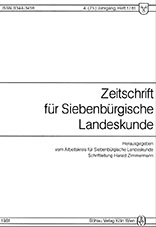

Keywords: pseudoculture; kitsch; politics; myth; totalitarianism
From the sociological and historical point of view, political consciousness has always been in close vicinity to the mythic one. Moreover, politics has often affected the process of revival and shaping of the mythic consciousness. On the other hand, myths have also had a creative role in directing the politics of particular societies and historical epochs. This coupling of politics and myth, in a context which is mostly negative, is more than actual today. The societies in transition, such as the Serbian one, are firmly gripped by politically distorted myths. Thus myths are becoming a vile weapon in the hands of an authoritarian or insufficiently democratic government. Under such circumstances, politics and political opinion become means of lies and cheap propaganda. The ruling structures abuse the tradition and myths for the sake of winning the power or their survival on the political stage at any cost. Pseudoculture and kitsch are the very foundations from which politicians, with the help of the distorted myths, can disseminate lies and empty promises. It is upon these theoretical assumptions that the author of this paper bases his commentaries about kitsch culture of the contemporary Serbian society and its historical roots.
More...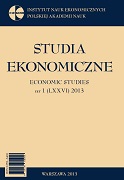
Keywords: history of economic thought; economic methodology; positive economics; normative economics; value judgements in economics.
In the article I try to reconstruct the standard meaning of the terms value judgements and value-free economics used in long lasting debates about positive or normative nature of economics. The analysis begins with quoting Milton Friedman’s view from his famous and influential essay On the Methodology of Positive Economics (1953), then it proceeds to Wilfred Beckerman’s Economics as Applied Ethics. Value Judgements in Welfare Economics (2011) as an example of a different interpretation of the meaning of the terms value judgements and value-free economics. The same ambiguity can be found in many statements of contemporary methodologists of economics. I see it as one of the main reasons for the prolonged disputes about whether certain parts of economics are positive, or normative, and whether economics is or is not value-loaded (value-impregnated). The paper documents the peculiarities of economics as a science, and particularly the relative inefficiency of scientific criticism in economics.
More...Keywords: Sexuality; Identity; Social Constructionism; Homosexuality
There has been a revolution in the way we think about sexuality. Until re- cently, it was believed that humans were born with a sexual nature and that the natural order crated persons of a distinct sexual type. In contemporary scientific world, sex is predominately seen as fundamentally social. Sociologists have been at the forefront of researching sex from a social perspective, studying sexual identity and forms of sex- ual conduct as social and historical products. Historians have documented the change in the meaning of homosexuality - from behavior, to a type of gender deviance, to an abnormal personality, and finally to an affirmative social identity. The work of phi- losophers is equally central, and it is mostly seen in the deconstruction of the idea of sexuality itself, and sex/gender identities by pointing to their performative character.
More...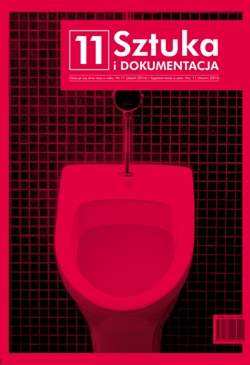
Keywords: biography; biografia; performance art; methodology; art history; historia sztuki; sztuka performance; metodologia; Metamuzeum; Artur Tajber
This article presents a network of notions drawn mainly from Theory of the Avant-garde by Peter Burger, the pragmatic aesthetics of John Dewey and Richard Shusterman, in terms of Krystyna Wilkoszewska, and the relational aesthetics of Nicolas Bourriaud and it is supplemented by related concepts such as ‘incontrology’. These notions form a proposal for the methodological categories around which strategies can be created for the study of performative phenomena with emphasis on the (auto) biography. The concepts of the pragmatic aesthetics recalled above are defi ned so that they become useful in the study whilst taking into account the changeability of the object of study. Pragmatism, by virtue of its basic assumptions, as well as performance art forms by its nature, are guided towards the individual and the practical life of the individual, and respectively - towards individual artistic practice. This tends to include a biography in research and interpretation of single individual artworks, but most importantly here, biography is one way to study art history, history of action art and the performance art discipline. Action art history is the history of presentness. The history of performance art can be ‘told’ through the history of performers. Exemplifi cation is made up of examples gathered in the project Metamuzeum by Artur Tajber, who invited artists-performers to participate in it using a biographical key. They are artists born in 1953 as Tajber himself, who share experience of the same generation: Jaap Blonk (Netherlands), Seiji Shimoda (Japan), Roi Vaara (Finland). This set was completed by the artists invited by him to participate in a mini festival of performance art entitled 1923-2013 Performance Art (MOCAK in Cracow). The starting point of the festival was also the biography of the performers, this time celebrating in 2013 ‘full’ anniversary of the birth: 1923 - this is the year of the birth of Jan Świdziński, who reached his 90th year, Stuart Brisley, born in 1933 who reached his 80th year, Alastair McLennan, born 1943 who reached his 70th year plus the previously mentioned ones born in 1953. It shows individual biographies building up performance art on a global scale. The artistic biographies of the performers are a record of their journeys, but also part of a record of the history of the discipline. In the examples (histories) collected by Tajber in the project, individual biographies nearly overlap with the history of the discipline. This case analysis shows the process of the development of performance art world wide and at the same time its regional diff erences. We can see how the network - institution of performance art was constructed and how it changes; its dynamics, its “rhythm of life” and follow Wilkoszewska who published her book Art as the Rhythm of Life on Dewey’s aesthetics. The history of performance art is also, to a large extent, the history of performers’ journeys.
More...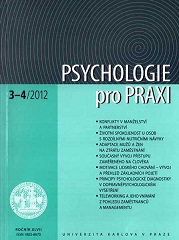
Keywords: Grief; death; bereavement; intellectual disability
The topic of bereavement in people with intellectual disabilities is still rather underestimated in Czech Republic. This paper first describes the myths passed on in this area. Subsequently it characterizes specifics of experiencing grief in people with intellectual disabilities (their possibilities of understanding the reality of death, the influence of the social context) and possible expressions of their grief, that could be sometimes misunderstood for variability of its unusual forms. The core information is the overview of possible support that could be provided to grieving people with intelectual disabilities such us foreknowledge and education about the death, chosen specifics of professional counseling and specific therapy.
More...Keywords: Textproduktion; Übersetzung; Gramatikalisches Urteilsvermögen; Text; Kontext; Syntax; Semantik; Pragmatik.
Textproduktion stellt ein umfangreiches Bereich dar, der aber aus dem Sichtpunkt eines Übersetzers angesehen, viele Grundsätze beinhaltet, die zu einer erfolgreichen, genauer und qualitativen Übersetzung führen. Die vorliegende Studie wurde bestimmt um theoretische Einsichten betrefflich der verschiedenen Aspekten einer Übersetzung vorzustellen, inbesondere in der Richtung der Grunderfordernissen der Textproduktion, welche für das Verstehen der elementaren Problemen aus dem Prozess der Transponierung, Nachbildung und Wiederherstellung des Textes essenziell sind. Die Beispiele, ausgesucht um das theorethische Teil zu unterstützen, zeigen sehr deutlich, daß das Achten auf den Grundsätzen der syntaktischen aber auch semantischen und pragmatischen Ebenen des Textes sehr wichtig sind, um kohärente, qualitätsmässige Texte herzustellen.
More...Keywords: audiovisual translation; dubbing; subtitling; translation strategy; standardization; adaptation
The article presents the conception of audiovisual translation and its main characteristics, describes its types and steps of performance, as well as translation strategies applied and constraints caused by technical and linguistic peculiarities of audiovisual products which translators face while translating. Films, animated films and series have become an integral part of an average person’s life. All of them have different functions and are targeted at different groups of people but all of them are united by the type of translation performed. Audiovisual translation is one of the youngest fields of Translation theory and studies, the investigation of which is aimed at improving the results of translators’ activity to meet the expectations of recipients. In contrast to other types of translations, it possesses specific characteristics which require special steps of its performance and translation strategies which can be used. Its main characteristic is synchronization of verbal and nonverbal components which make translators works not only with texts but other aspects of the media art. Translation strategies are viewed not in the situational context but in wider global meaning comprising an audiovisual product as a whole.
More...Keywords: New public management; human resources; strategic management; changes.
The paper focuses on the human resources (HR) management in the public sector. The authors give a theoretical description of the main aspects of the New public management (NPM), changes in human resources management influenced by NPM, and preparation/ resistance of human resources to changes. Seeking for effectiveness in public institutions activity the importance of human resources becomes especially evident. The system of human resources in the public sector is closely related to the creation of new quality. But at present there is no suitable correspondence of the NPM with the priorities of long-term development, the ways of their implementation and the means in the sphere of the human resources development. Generalizing the results of theoretical researches the authors present the main change trends of the HR management in the public sector.
More...
Keywords: miniority language translations; Skopos theory; pragmatic approach
In the last decades population movements are facilitating connexions between groups of minority languages and cultures and a majority and dominant language and culture in limited time and space. This creates needs that bring about change. As a consequence the institution’s need to communicate with the users of its services forces the creation of mechanisms and tools that help in this endeavor. One of the solutions often used is both the production of multilingual materials and the translation of materials from the majority language to the other minority languages. Since the aim of these translations is to facilitate communication, a pragmatic use of the language in regard to the translated texts (TT) receiver should be adopted. Our aim is to analyze the translated texts produced in the immigrant languages in light of the Skopos theory.
More...Keywords: motivation for learning science; self-confidence in science; inquiry-based learning;
The article deals with the Lithuanian school students’ motivation for learning science on the basis of TIMSS 2015 data. This article analyses the influence of two factors on motivation for learning science: the self-confidence in science of school students’ and teaching science using inquiry-based approach. The purpose of the research is to analyze the influence of self-confidence in science and the influence of teaching science by inquiry approach on students’ motivation for learning science.
More...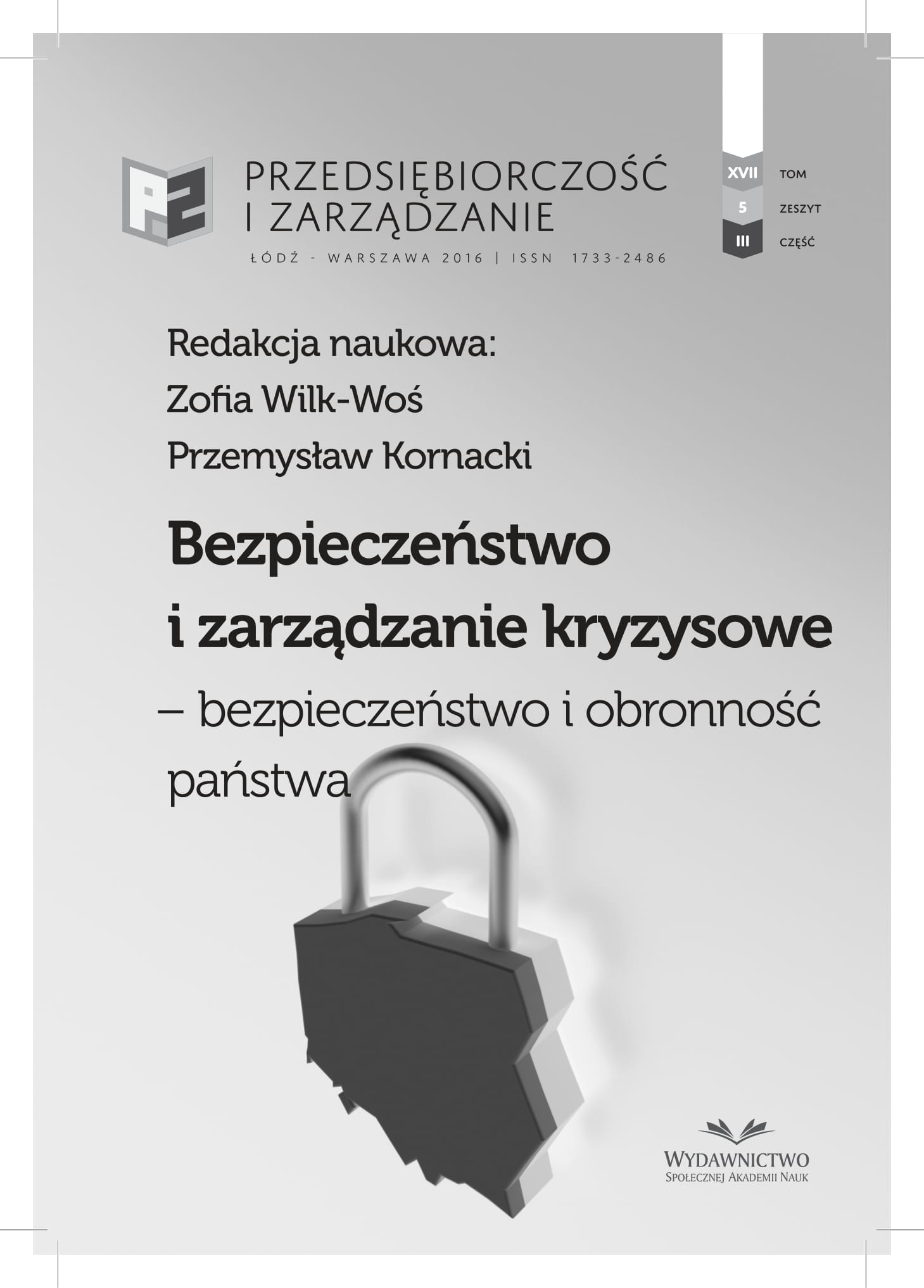
Keywords: unrestricted warfare; conflict; instruments of the influence; non-kinetic activities; aims
The purpose of the article is to explain the significance of the unrestricted warfare led nowadays in consequence to fulfill revisionist ambitions of some states in the world and consequences of that for the international security. Current course of wars, including unrestricted wars, is diverging much from the described theory of the phenomenon. The article shows the terminological dilemmas concerning the category of wars and against their background identify of the unrestricted warfare. It concentrates on the unrestricted warfare theory explanation and describes its evolution.
More...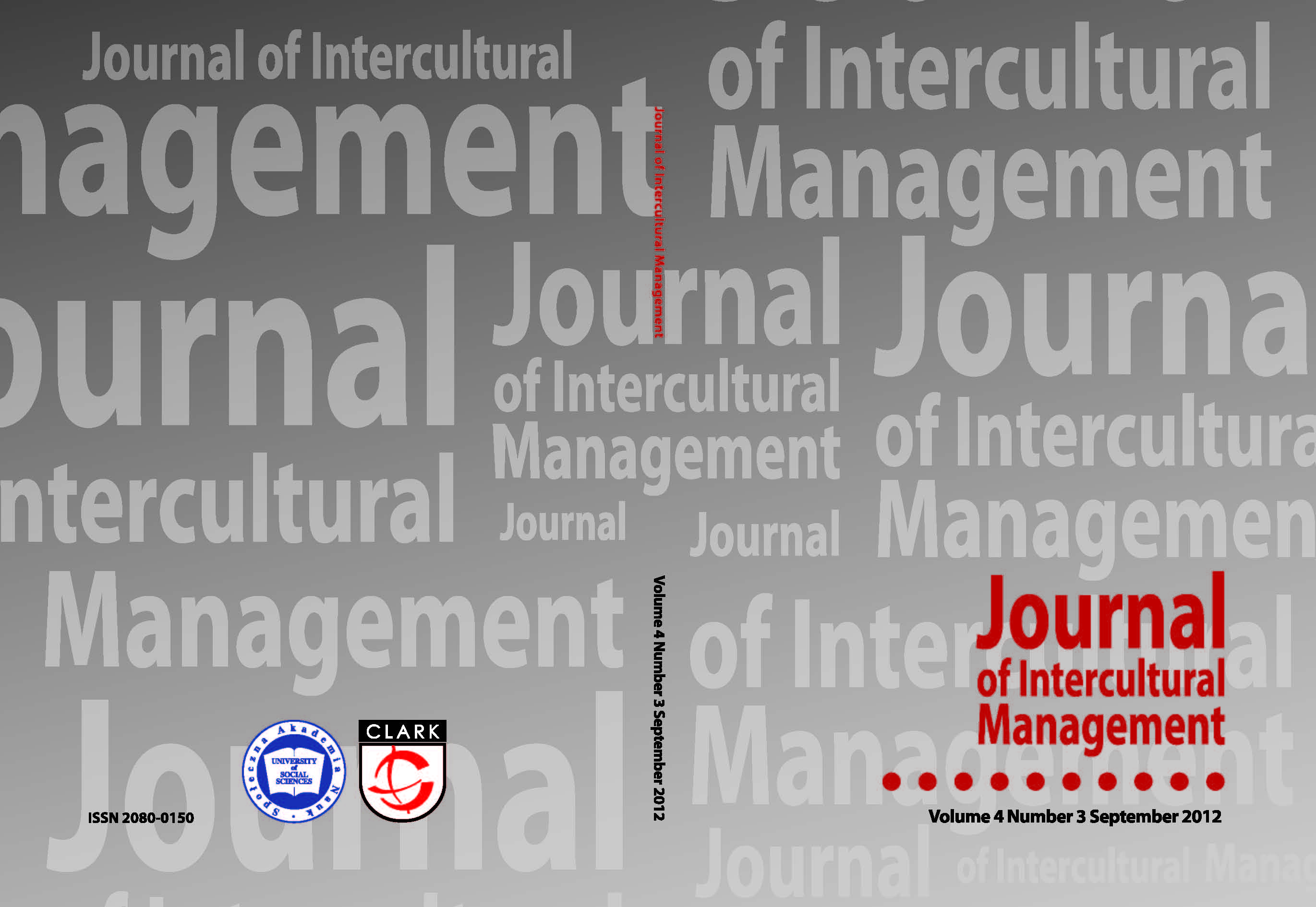
The development of the cultural concept of organization and management is a part of a broader thought concerning the study of culture in the social sciences and humanities. There are numerous complex relations between management and other sciences such as sociology, social psychology etc. The subject of the article is the historical analysis of a cultural trend in management in relation to changes in the theory of culture.
More...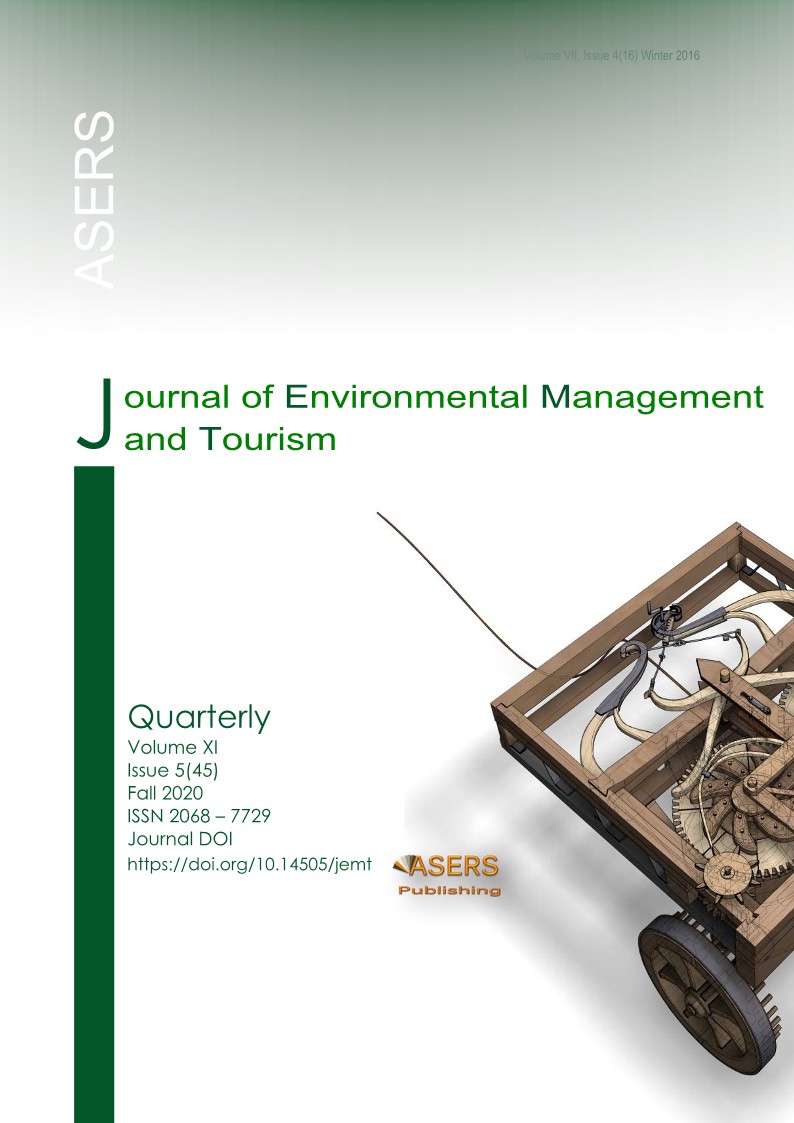
Keywords: legal regime; compensation; environmental disaster; restoration;
The legal regime of environmentally unfavourable territories is studied in the article. Nowadays, more and more areas of the territory of Kazakhstan are exposed to unfavourable impact on the environment due to the increasing influence of developing scientific and technical progress. These activities do not only harm environmental systems and individual natural resources but also complicate and sometimes make it impossible for citizens to live in these areas. Such areas of the territory need to be restored, the damage should be compensated, and the inconveniences of human habitation should be compensated. Thus, there is a need to establish special legal regimes governing the respective responsibilities of those who carry out activities that degrade the environmental situation in these areas, the authorities, and the rights of citizens living in these areas. The objective of the presented study is to analyze the legislation regulating the legal regime of environmentally unfavourable territories in the Republic of Kazakhstan and the international experience of such regulations. As a result of the research, the authors conclude that it is necessary to develop a comprehensive legal regulation to address most of the issues of ensuring the restoration of environmentally unfavourable areas, compensation for environmental damage, and reimbursement to the population.
More...Keywords: public prosecutor; managerial role; pre-investigation proceedings; inefficient powers;
Managerial role of the public prosecutor in Serbian pre-investigation proceedings is one of the main characteristics of current Criminal Procedure Code. Passing the Criminal Procedure Code from 2011 the investigation has been transferred to the public prosecutor, who is in charge not only for the investigation, but has managerial role in the pre-investigation proceedings. He has become dominus litis of the whole preliminary proceedings. Therefore is important to perceive his powers and relationship with the police in the pre-investigation proceedings. The topic of this paper is to present legal solutions regarding the pre-investigation procedure, main figures of this stage, the police and the public prosecutor, their relationship and essence of the managerial role of the public prosecutor. Also, some practical aspects in execution of leadership role are explained and critically overviewed the problems that limit the realization of the managerial role of the public prosecutor.
More...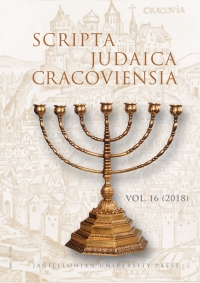
Keywords: tokens; Polish Jewry; material culture; anthropology of Jews; media of exchange; Tsedaka (charity); Shechita (ritual slaughter);
Tokens are nongovernmental circulating media of exchange, as opposed to coins and other official currencies, which are an exclusive prerogative of sovereign authorities. As a commercially active minority community within Poland, Jews of course utilized official nationally issued monies, but they also issued and circulated many forms of tokens to serve varied social, religious, charitable, and commercial purposes. Tokens of non-precious metals and paper were issued by principal Jewish communal authorities; by societies active in maintaining services such as burial, ritual slaughter, education, care of the sick and elderly, and the distribution of alms; and by prominent merchants. The relatively small value and humbleness of such objects, and the fact that their acceptability did not extend beyond the town of their issue, has meant that they were rarely saved and preserved in the course of Jewish migration and during the tumult of wars and pogroms. Therefore, unlike obsolete national coinages, such local tokens have remained virtually unknown and have never previously been collected and studied, either privately or by museums. Recently, metal detectorists at sites of former Jewish habitation have uncovered considerable quantities of metallic Jewish tokens which display a remarkable geographic range and variety of form and function. This paper, based largely on such newly discovered material, presents this rich trove of artifacts for the first time, and attempts to describe and situate their functions within the social and economic context of Jewish communal life in Poland prior to the World War II.
More...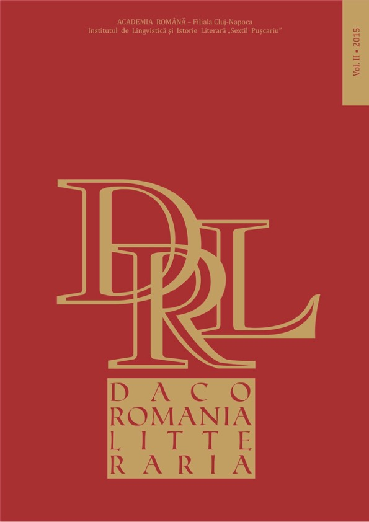
Keywords: thingness; defamiliarization; Heidegger; Flaubert; Robbe-Grillet; Saramago;
The term “thing theory” was coined in 2001 by the American Bill Brown who was trying to speak out in favor of things as a possible alternative to endless abstraction. This essay claims that thing theory not only opens up the possibility of a fresh approach to literature but also to some extent accounts for why literature is attractive. After briefly exploring the roots of thing theory in the work of Viktor Shklovsky and Martin Heidegger, I propose that readers are drawn to literature not just because literary texts are character- or plot-driven but also because they are thing-driven. I claim that Shklovsky’s long-standing emphasis on plot (inextricably intertwined with character) is at odds with the Russian Formalist’s own famous statement about art allowing us to feel the stoniness of the stone, and I suggest a parallel between Shklovsky’s contention that literature makes the stone stoney and Heidegger’s celebration of literature as guarding against the loss of “thingness.” The contention that works of literature provide a platform on which things may be allowed to speak their own “being” is then traced through three works of fiction by Gustave Flaubert, Alain Robbe-Grillet, and José Saramago.
More...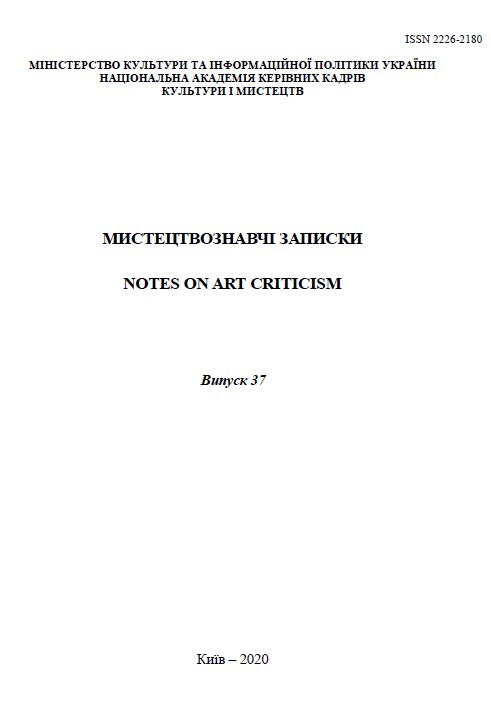
Keywords: theatrical communication; actual artwork; dehumanization of art; realism; modernistic discourse; tragedy; stage interpretation;
Purpose of the article is to outline “actual” artwork’s perception problems after the example of Oscar Wilde “Salome” literary and stage history in 1890 – 1900ths, using as a historical-&-culturology studies’ objectification mechanism basic theses of Jose Ortega y Gasset “dehumanization of art” panmodernistic theory. The methodology presupposed multidiscipline approach – – simultaneous implementing of the sociological and historical-&-culturology methods with the elements of the hermeneutics and structural analytics. The scientific novelty of the study means that for the first time stage interpretations of the early European Modern emblematic play have been analyzed, leaning for the basic principles of the panmodernistic theory, hitherto popular in the worldwide culturology and fine arts research quarters. Conclusions. “Actual” artwork’s perception by the literary-&-stage product consumer is an important part of each epoch historical segment of the dramatic-&-theatre discourse. The dramatic destiny of Oscar Wilde one-act tragedy “Salome” and its interpretations in the European theaters of the late 19th – early 20th century helped to display the main point of the problem –– the contradiction between the realistic-&-romantic art, preferred by the audiences and art critics of those days, to early modernistic creative works, needed another communicative format for its adequate perception. Step-by-step, but evident changes of the esthetic paradigms and artistic systems, characterizing the Ukrainian theatre process from 1990ths, actualize the extrapolation of the designated problematics to the nowadays theatrical reality.
More...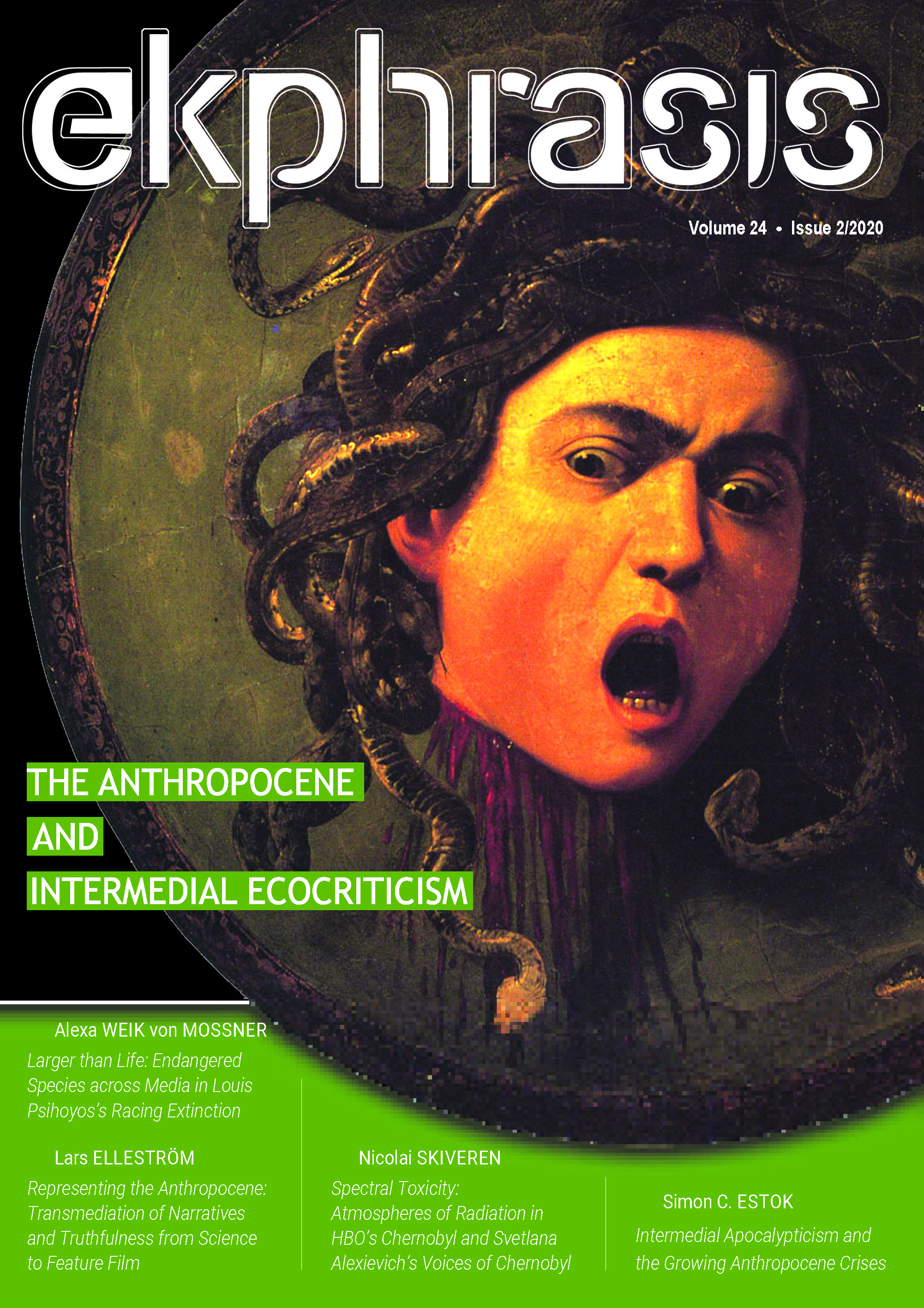
Keywords: ephemeral art; coping; ecocriticism; Anthropocene; loss; human condition;
In relation to the wider theme of this journal, this paper explores how ephemeral arts investigate basic ecocritical questions around experience, presence, and loss, through a literal language of fragility and disappearance. Ephemeral art is used here to define a category of artworks which physically exist within a limited timeframe and for which this fixed duration clearly frames the work. Through creating landscape interventions, the three artworks discussed, explore the relationship with what is manmade and artificial, and the physical environment in which they are placed. The conversation the works enable is both with and about our relationship to our physical surrounding. It is an exploration of place and (be)longing through the temporary materialization of an uncertain presence which jarringly subverts the expectation of what fits and what lasts. Specifically, the argument is put forward that ephemeral art through its staging of limited material duration is a coping tool within the Anthropocene which both expresses and confronts the human condition.
More...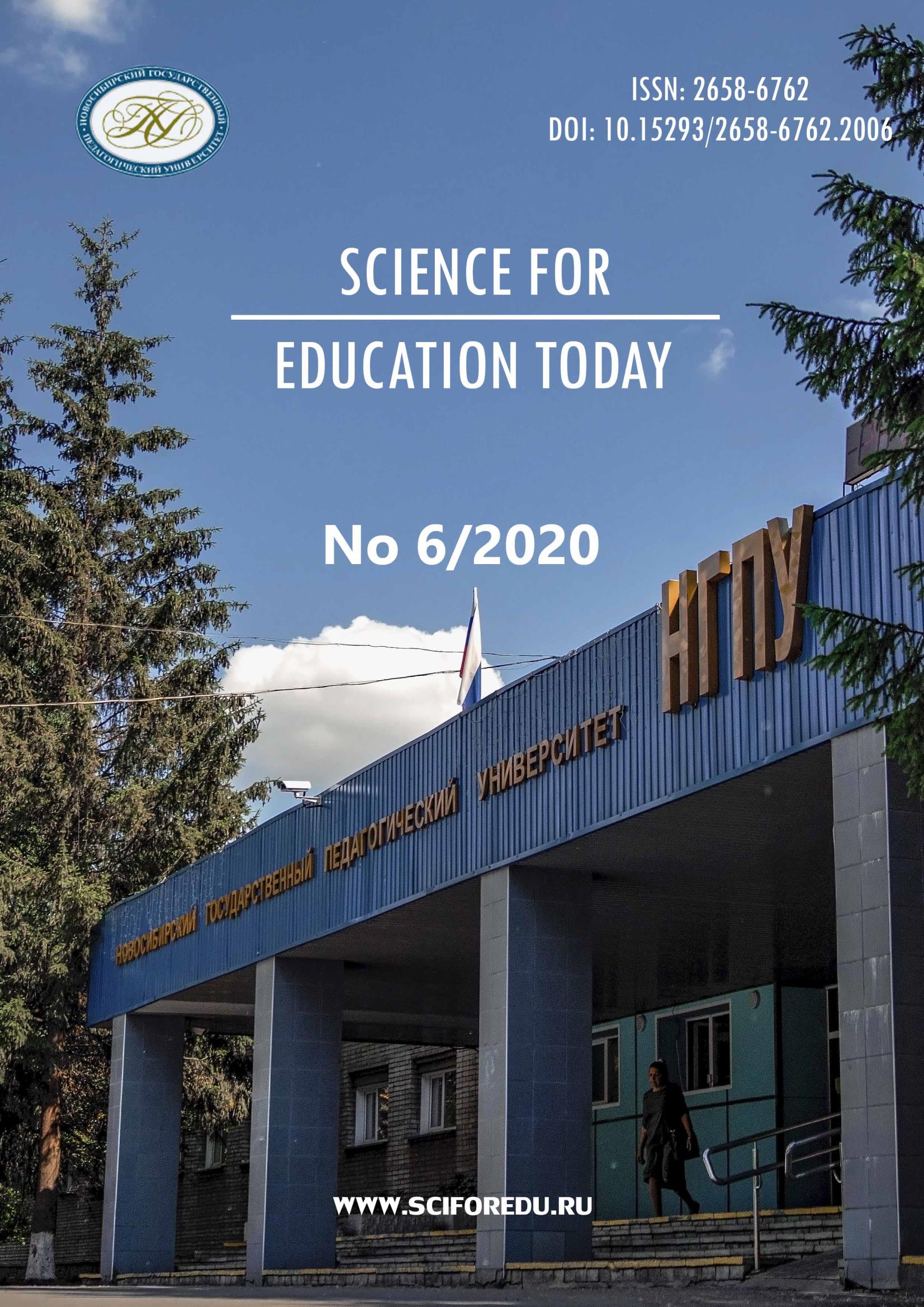
Keywords: Inhibitory control; Working memory; Internal health picture; Primary school children; Adolescence; Early adulthood;
Introduction. The paper analyses the interrelation between a person’s cognitive control and their inner picture of health, which is a component of the person’s conscious attitude to one’s health, at different stages of ontogenesis. The purpose of the research is to analyze the relationships between the level of one’s executive functions development (inhibitory control and working memory) and the level of the internal picture of health (hereinafter IPH) in primary school age, adolescence and early adulthood. Materials and Methods. The research into how executive functions (inhibitory control and working memory) and the IPH are interrelated was based upon the analysis and study of scholarly literature and the experimental work which involved methods of inhibitory control assessment (Vergunov, Nikolaeva), a technique for assessing visual working memory (Rasumnikova, Savinykh) and a quick modified child’s diagnostic technique (Nikolaeva et al.) used for assessing the IPH. The obtained data were processed by means of the quantitative and qualitative data analyses methods and the SPSS-21 programme pack. The total number of the experiment participants was 262 people, among them primary schoolchildren (9.8 ± 0.8 years, n = 66), adolescents (12.8 ± 1.5 years, n = 101) and university students (20.4 ± 1.3 years, n = 95). Results. It was found that neither of the working memory parameters was associated with the IPH level in any of the three groups. The inhibitory control, however, had different interconnections with the students’ IPH at different age stages. It was found that only in adolescents the inhibitory control is closely associated with the IPH, which is proved by their independent decision-making regarding their behaviour and attitude to health at this age. The found interconnection decreases in early adulthood, which may indicate the presence of some additional factors affecting both the IPH and inhibitory control. Conclusions. The connection between the IPH and the person’s executive functions depends on the person’s age and it is most evident in adolescence
More...